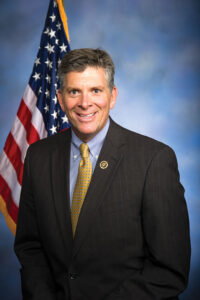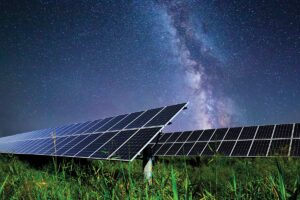 In 2005, my wife Kristen and I were living in Las Vegas, Nev., and I was working for the U.S. Department of Justice as a federal prosecutor. We were faced with the decision of where we wanted to raise our three young sons. The choice between central Illinois and Las Vegas was very easy. The next year we moved back to central Illinois and settled in Dunlap. We have never looked back.
In 2005, my wife Kristen and I were living in Las Vegas, Nev., and I was working for the U.S. Department of Justice as a federal prosecutor. We were faced with the decision of where we wanted to raise our three young sons. The choice between central Illinois and Las Vegas was very easy. The next year we moved back to central Illinois and settled in Dunlap. We have never looked back.
The people of the 18th Congressional district in central Illinois are hardworking, honest, self-reliant, have a strong faith in God and are generally skeptical of government; and many of them are farmers. Thomas Jefferson more eloquently described farmers when writing to John Jay: “Cultivators of the earth are the most valuable citizens. They are the most vigorous, the most independent, the most virtuous, and they are tied to their country and wedded to its liberty and interests by the most lasting bands.” As true now as it was then, this describes the people of Illinois.
Agriculture is our state’s largest industry. Out of the 435 congressional districts in the country, the 18th district of Illinois, which covers 19 counties in central and west-central Illinois, has some of the world’s richest farmland and represents the ninth largest district in corn and soy bean production.
Farming is the backbone of our economy, it is a culture, a way of life, a legacy.
Unfortunately, agriculture is under assault. Big government has taken aim at farmer’s land and private property rights. The industry is plagued by a burdensome tax code and overregulation. Politics has delayed vital infrastructure and trade legislation. All of this at a time when farmers are dealing with low commodity prices.
One issue is especially egregious. The Waters of the United States (WOTUS) rule, passed down by unelected bureaucrats in Washington D.C., carries the weight of law for citizens in my district, but circumvents the legislative branch of government. Farming families are regulated by the Environmental Protection Agency (EPA), which now has jurisdiction over any type of body of water on their land: lakes, ponds, creeks, or yes, even puddles. I recently questioned EPA Administrator, Gina McCarthy, on the non-transparent rulemaking process and the shaky science behind WOTUS. Since no one in the agriculture industry, regardless of political affiliation, supports this rule, I asked how can she defend it and argue that she understands the real world impact. Her answers were insufficient and out of touch, at best.
I ran for office because the people of Illinois deserve much better from the federal government. We need to jumpstart our economy, promote job growth, protect individual liberty, and restore constitutional authority in this nation. Much of this would be accomplished by policies that support agriculture.
In Congress, I advocate for reducing existing barriers to trade. Ninety-five percent of the world’s consumers live abroad. We must open up more of these markets for farmers to sell their crops and products. Twenty to 30 percent of all of our grain produced in Illinois is shipped abroad. That’s a fat check. Expanding trade into markets in Asia and in places like Cuba will help farmers in Illinois.
Additionally, we must provide the infrastructure farmers need to get products to market, which means

resources and local flexibility for repairing our roads and bridges, and modernizing our nation’s locks and dams. Last year I worked towards these improvements by serving on a conference committee to negotiate and produce the FAST Act, the first long-term transportation bill in a decade.
Lastly, I stand for a repeal of the death tax in any tax reform proposal that Congress considers. This drain on the economy is harmful to our nation’s farmers, ranchers and small businesses.
I ran for office for the same reason that I moved to Illinois: so that my sons would have a bright and wholesome future. That means fighting for our farms, for freedom, for food and for jobs. This has been my priority and it always will be.









